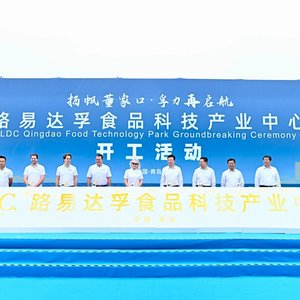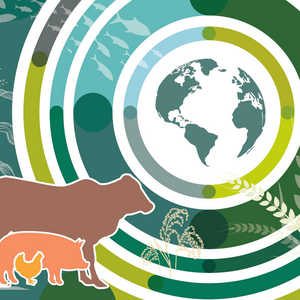The National Oceanic and Atmospheric Administration, an agency of the U.S. Department of Commerce, has awarded the Oceanic Institute of Oahu, Hawaii, two grants to test new methods used to raise several Pacific fish species by marine aquaculture.
A grant of $517,825 will fund the Institute’s Hawaii Sustainable Fisheries Development Project, and $482,625 will support its Hawaii Stock Management Program. The goal of both programs is to develop commercially feasible technology used to raise high value marine finfish in the United States. If successful, an increase in aquaculture fish can serve stock enhancement purposes and promote a sustainable commercial aquaculture industry for high value species.
“The grants support the type of sustainable use research that may improve the ways several important Pacific salt water species are cultured. Over time, these new methods may help sustain wild fish stocks and generate business opportunities,” said retired Navy Vice Adm. Conrad C. Lautenbacher, Ph.D., under secretary of commerce for oceans and atmosphere and NOAA administrator. “This grant funding reinforces the NOAA and Bush Administration’s commitment to the environment.”
The Hawaii Sustainable Fisheries Development Project will test large systems for holding adult, egg producing fish, as well as find methods that improve the long-term health of this adult broodstock, and the ways fish larvae can better survive in the first few weeks of their lives. The work will test systems big enough for commercial aquaculture use.
The project will include marine angelfishes and yellow tang, coral reef species that are of conservation concern and of value in the ornamental aquarium fish trade. The project will also study amberjack and yellowfin tuna, both valued as food fish and now of prime interest to aquaculture businesses beginning offshore cage culture of food fishes. The work with the coral reef species and amberjack builds upon past successes in NOAA funded research at the Oceanic Institute. The work with yellowfin tuna will be a pioneering effort in the United States. This research should help NOAA's goal of increasing food production for the nation from more effective aquaculture.
The Hawaii Stock Management Program builds upon more than 10 years of NOAA funded research to find methods of helping improve the condition of depleted fisheries by the release of cultured fishes. The species chosen for this program is the Pacific threadfin, known in Hawaii as moi.
The grant will fund a study of the effects on the fishery of releasing larger cultured moi, and the costs vs. the benefits of those releases. The program also studies how stock enhancement may affect the moi ecosystem, as well as genetic studies to determine the long-term effects of the released fish on multiple generations.
The studies of ecosystem effects of the stock enhancement program will focus on the number of fish the habitat can sustainably support and the feeding interactions of released and wild moi with their prey and predators. Researchers will track this information using a variety of traditional and newer methods. This research will help NOAA's efforts to sustain and restore fisheries by providing information about environmental impacts of releasing cultured fish to rebuild fish populations
Each year, NOAA awards approximately $900 million in grants to members of the academic, scientific and business communities to assist the agency in fulfilling its mission to study the Earth’s natural systems in order to predict environmental change, manage ocean resources, protect life and property and provide decision makers with reliable scientific information. NOAA’s goals and programs reflect a commitment to these basic responsibilities of science and service to the nation for the past 34 years.
To learn more about NOAA, please visit http://www.noaa.gov.
Comments on this story? Email: editor@aquafeed.com










